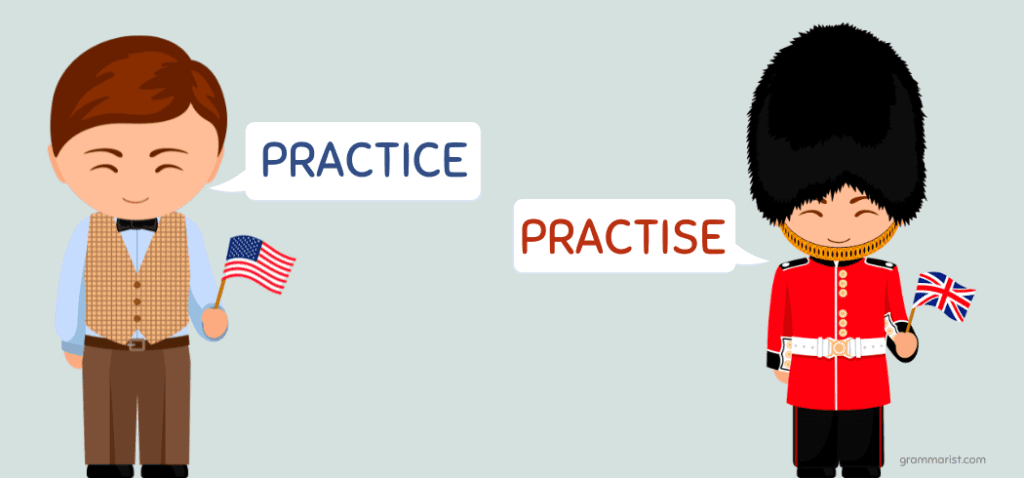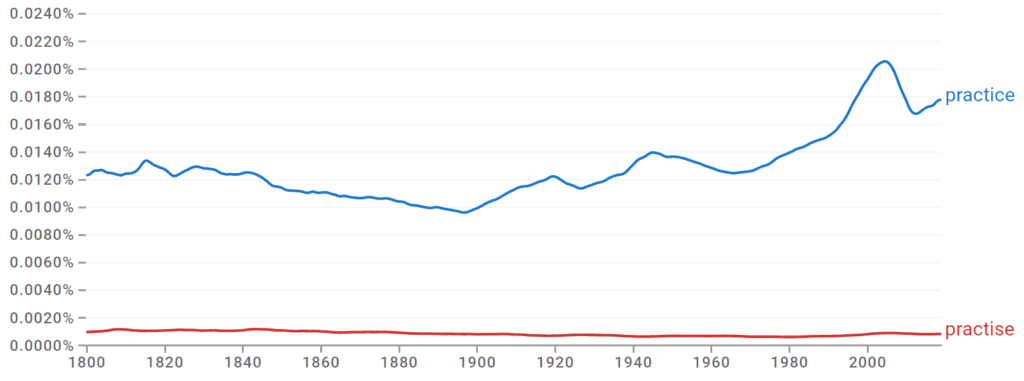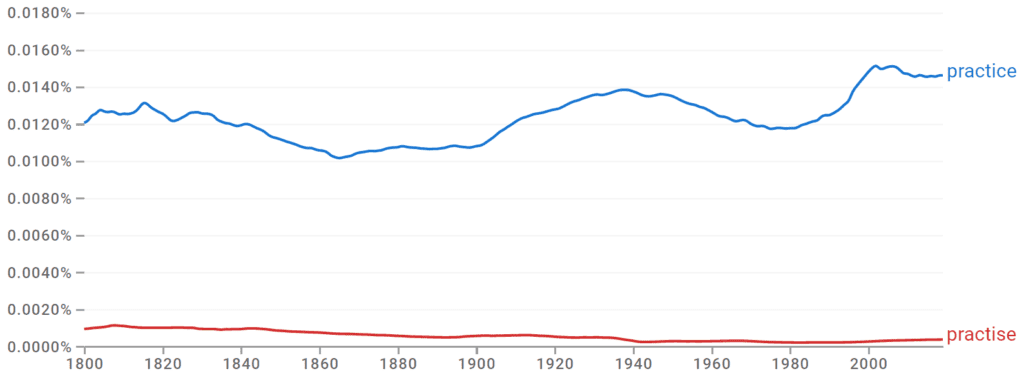It’s always best to use the correct spelling of certain words when you’re writing. But it’s even more important when you’re writing to specific audiences that vary depending on the region, like the US vs. the UK. Some examples are the words “practice” and “practise.” Let’s check out which is correct and how you should be using them.
Is It Practise or Practice?
The biggest difference between “practice” and “practise” is a matter of British versus American English. In British English, “practise” is the verb form, while “practice” is the noun form.
But then again, in American English, “practice” is used for both the noun and verb forms. I know, just pick a lane, right? Here’s some more insight.
Practising or Practicing?
As I just mentioned, “practise” with an S is the verb form in British English, and “practice” with a C is the verb form in American English.
Therefore, if you’re writing for a British audience, you should use “practising,” but if you’re writing for Americans, you should use “practicing” when talking about the verb.
- British: I’ve been practising my football moves.
- American: I’ve been practicing my soccer moves.
How Do You Spell Practice?
Again, for American English, the correct spelling of the noun and verb form is “practice.” But in British English, the noun form is “practice,” and the verb form is “practise.”
The same should be applied to a Canadian audience as we tend to take on the same spelling and grammar rules as the UK, but the American rules are used more up here.
Is Practice a Noun or Verb?
When dealing with American English, “practice” is both a noun and a verb. As a noun, it describes an activity and usually goes along with a noun, like a soccer practice or band practice.
As a verb, it means to perform an activity over and over or to carry out a specific activity or exercise.
- I need to practice my soccer moves.
- I have to practice the cello for the band this weekend.
But with British English, “practice” is supposed to be used as a noun, and then “practise” is used as a verb.
Do Lawyers Practice or Practise?
For Americans, lawyers “practice” law, but in British English, they “practise” law because American English uses “practice” as a verb, while British English uses “practise” as a verb.
When Should I Use Practise and Practice?
You really only need “practise” if you’re writing in or for the UK because that’s their verb form.
But “practice” can be used for both the noun and the verb and would be accepted pretty much in any context.
Synonyms for Practice
- Exercise
- Drill
- Training
- Rehearsal
- Routine
- Habituation
- Repetition
- Skill-building
Practise and Practice Examples in a Sentence
- Ed practices his guitar playing for two hours every day and plays regular shows at the pubs on weekends.
- Mary practices her yoga routine in the park every Sunday afternoon.
- All the doctors at the hospital in Greenwich practise medicine.
- My son’s football team had a great practice session before last night’s big game.
- To become a great author and writer, you need to practice writing every day.
- I can’t go to the mall because I have football practice.
- Taking care of yourself is just a common practice.
- Since you’re new to playing the game, I’ll let you take a practice shot.
- The dancers in my daughter’s class went through their choreography during the practice.
- I just opened a medical practice in a small town.
- I wanted to become a better public speaker, so I joined a Toastmasters club to practice.
Practice, Practise, Practice!
That’s a wrap, folks. Now you know the difference between practice and practise. “Practice” can be both the noun and the verb in most situations, as it’s preferred in American English spellings, but “practise” is just the verb in the UK. Hope this guide helped you figure that out!





Comments are closed.